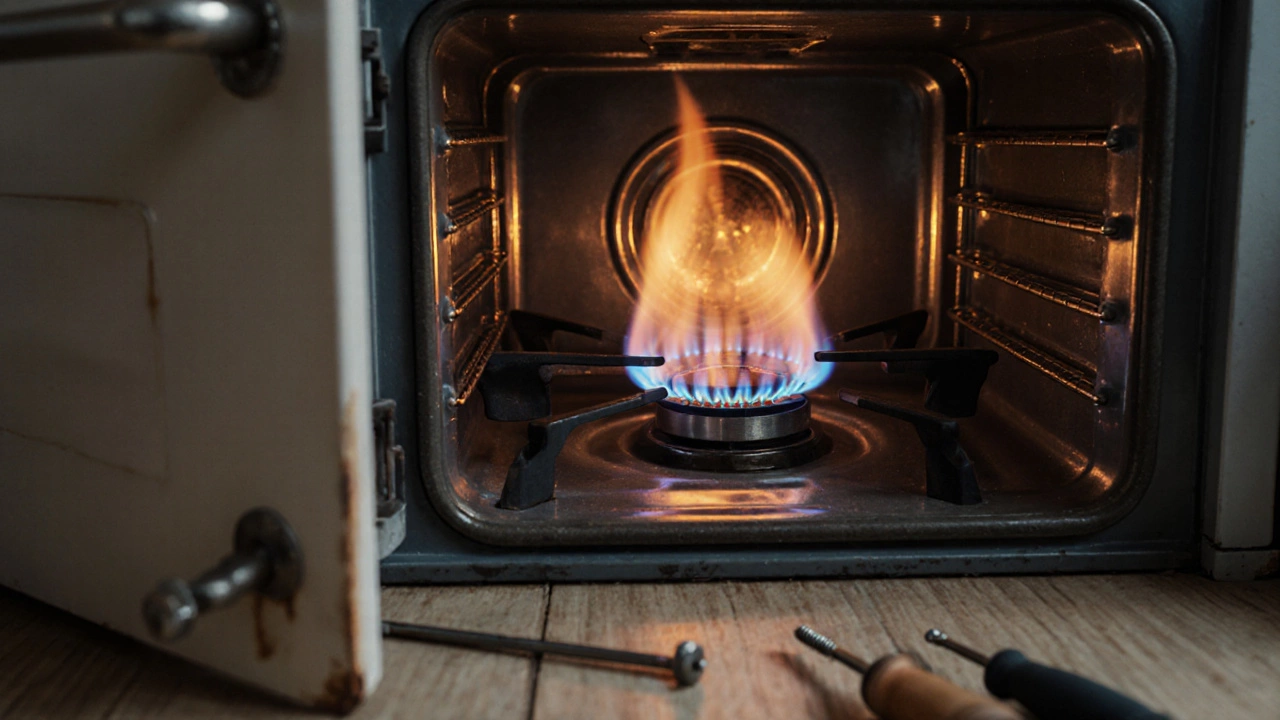Gas Appliance Repair: What You Need to Know
If your gas cooker, boiler or heater is acting up, you probably want it fixed fast and cheap. You also want to be sure it’s safe. In this guide we’ll walk through the most common problems, simple checks you can do yourself, and the signs that you should call a qualified engineer.
Common Issues with Gas Appliances
Most gas appliances fail because of three basic things: a blocked burner, a faulty igniter, or a leak in the gas line. A blocked burner can be caused by food debris or rust. If the flame looks yellow or sputters, clean the burner holes with a soft brush and wipe away any grime.
The igniter is the little spark thing that lights the gas. When it stops working, the appliance won’t light at all. You’ll often hear a clicking sound but see no flame. A quick test is to turn the knob to ‘ignite’ and watch for a spark. If nothing happens, the igniter may need cleaning or replacement.
Gas leaks are the most serious issue. If you smell a strong, rotten‑egg odor, turn off the gas at the main valve and ventilate the area. Never try to fix a leak yourself – call a certified gas engineer straight away. Small leaks can cause big safety problems.
DIY Tips and When to Call a Professional
Before you pick up a wrench, do a quick visual check. Make sure the appliance is unplugged (if it has an electric component) and the gas supply is off. Look for loose connections, burnt wires or cracked hoses.
If the problem is a dirty burner or a clogged nozzle, you can clean it with a toothbrush and a bit of vinegar. Rinse with water, dry, and try lighting again. Most of the time this solves a weak flame issue.
When the igniter is the culprit, you can sometimes replace it yourself if you’re comfortable with basic tools. Disconnect the power, remove the old igniter, match the part number with a new one, and install it the same way it came out. If you’re unsure, it’s safer to let a pro handle it – a wrong connection can cause a spark where it shouldn’t.
Cost-wise, a simple cleaning or igniter swap usually runs under £100, including parts. More complex jobs like gas line repairs or boiler service can cost £150‑£300 or more, depending on the part and labour.
When you should definitely call a professional: you smell gas, the appliance won’t ignite after trying the basics, the flame stays yellow for more than a few seconds, or you notice any rusted or corroded pipes. A qualified engineer has the tools and certification to test for leaks, check pressure, and ensure everything meets safety standards.
Regular maintenance can keep your gas appliances running smoothly. A yearly check by a professional helps catch wear early, improves efficiency, and can lower your energy bills. If you notice a drop in performance, schedule a service before the problem gets worse.
In short, start with the easy checks – clean burners, test the igniter, look for obvious leaks. If those steps don’t bring the flame back, or if you ever smell gas, call a qualified gas repair technician right away. Safe, quick fixes save you money, but safety always comes first.
Can Gas Ovens Be Repaired? What You Need to Know Before Calling a Technician
0 Comments
Gas ovens can usually be repaired for less than replacement, but only if they're under 15 years old and the issue isn't a gas leak. Learn common fixes, costs, and when to call a pro.
Read MoreWhy Are None of My Gas Appliances Working? 5 Simple Fixes
0 Comments
Have all your gas appliances decided to go on strike at the same time? This guide digs into why your stove, heater, or water heater might suddenly stop working. You'll get real-world reasons behind common gas appliance failures, practical safety tips, and quick fixes you can actually try at home. Learn which issues you can tackle yourself, and when to call in the pros. Avoid hours of frustration and keep your home safe.
Read More
